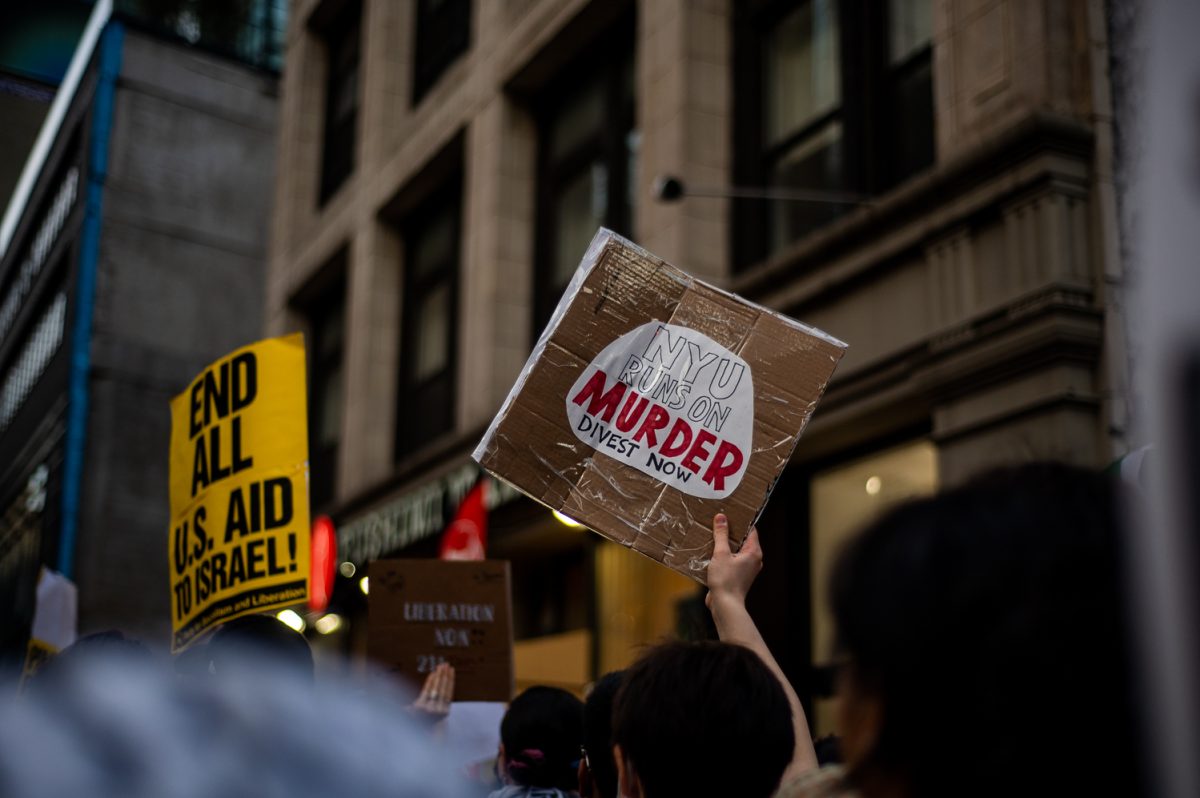The Sudanese Civil War has been characterized as one of the most dire humanitarian crises in the world, yet also one of the most underreported. As of October 2023, nearly 70% of Americans claimed not to understand anything about the war in Sudan “not very well” or “at all.” UN Ambassador to the United States Linda Thomas-Greenfield put it succinctly: “The people of Sudan have heard our silence.”
Sudan is not alone in its invisibility to the world stage. The Democratic Republic of Congo has also faced catastrophic conflict that has led to the death of thousands and displacement of millions, while being underreported on the global scale. Crises in countries like Ethiopia, Kenya and Haiti have followed a similar pattern: dire circumstances with little to no international support or sustained activism.
The lack of focus on these catastrophes is even more striking in juxtaposition to the nationwide support and widespread mobilization around liberating the people of Gaza. In the 13 months following Oct. 7, millions of people worldwide have responded to Israel’s siege in the Gaza Strip with protests, social media campaigns and media coverage — an amazing shift from the mainstream media’s lack of responsible coverage in previous years. While it’s heartwarming to see this outpour of solidarity for Gaza, it’s just as heartbreaking to see the relative lack of support for the Congo and Sudan. The silence and lack of action regarding issues pertaining to Black communities — both domestically and internationally — has roots in a deeper systemic issue of blindness and apathy toward their suffering.
The lack of coverage of the Sudanese Civil War, which has been ongoing for nearly two years and claimed the lives of over 60,000 people, demonstrates this blindness. So, why is there a lack of activism pertaining to crises affecting Black communities worldwide?
According to an article from Transnational Institute, one explanation for the lack of conversation around conflicts affecting Black communities is the desensitization to them by major media outlets.
“It can be argued that the normalization of African suffering over the past century has contributed to the lack of attention given to Sudan’s current war, as well as its past conflicts, poverty and famines,” the article reads.
The normalization of Black suffering has gone on for decades. An innate distaste toward issues impacting Black communities can be another explanatory factor for the lack of activism directed toward these conflicts. For many people, the crises of Africa and the Middle East fall into background noise — a steady beat of conflict, poverty and famine on the continent that the global public has been desensitized to.
Although the Congo and Sudan deserve more attention, we must avoid a zero-sum approach. While many activists have tried to draw parallels between the atrocities in Gaza and Sudan, several have also polarized the two and framed attention for one cause as detracting from another. By attempting to prioritize one conflict over the other, activism and care directed towards both are simultaneously diluted.
A truly intersectional approach to global justice requires us to stand with all oppressed communities. Structures of oppression — including colonialism, racism and imperialism — are interconnected systems which feed off of and perpetuate each other. Dividing our focus only prevents us from addressing the roots of global injustices.
We cannot sit around waiting for the mainstream media to develop an interest in Sudan and the Congo. It’s clear that they either believe the issue is too irrelevant to appeal to audiences or feel comfortable eschewing these conflicts in favor of more sensationalized, and therefore profitable, stories. It is important that students make this into the present issue that the news won’t — and protest in solidarity for those dying overseas. Activism for underreported crises is an uphill battle that requires intentional effort. It begins with education: seeking out reliable books, articles and donation sites, and boosting with them on social media — a tool that should be used to amplify, but not replace, deeper engagement.
The world is capable of paying attention to more than one injustice at a time. We should expand our scope of activism to include Black communities around the globe. Over 4,000 protests in support of Gaza took place in New York City in the last year. A similar level of grassroots organization is needed in the name of Sudan or the Congo. This solidarity sends a strong message, not just to the government but also to the Sudanese and Congolese communities: We hear and support them — and their suffering will not go ignored.
WSN’s Opinion section strives to publish ideas worth discussing. The views presented in the Opinion section are solely the views of the writer.
Contact Leila Olukoga at [email protected].


























































































































































